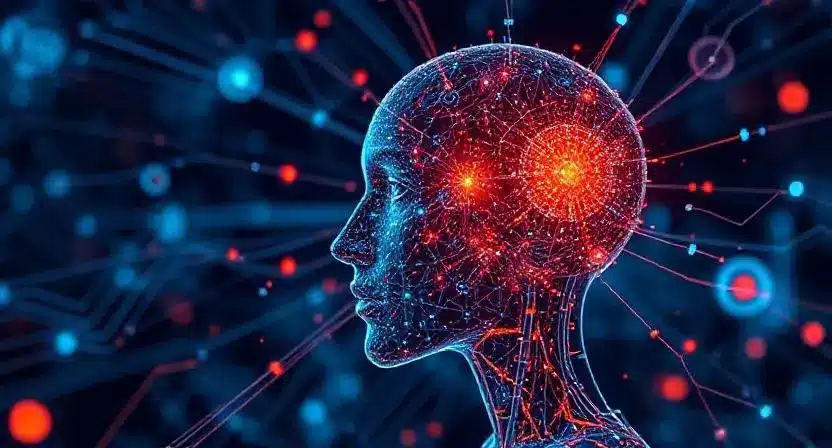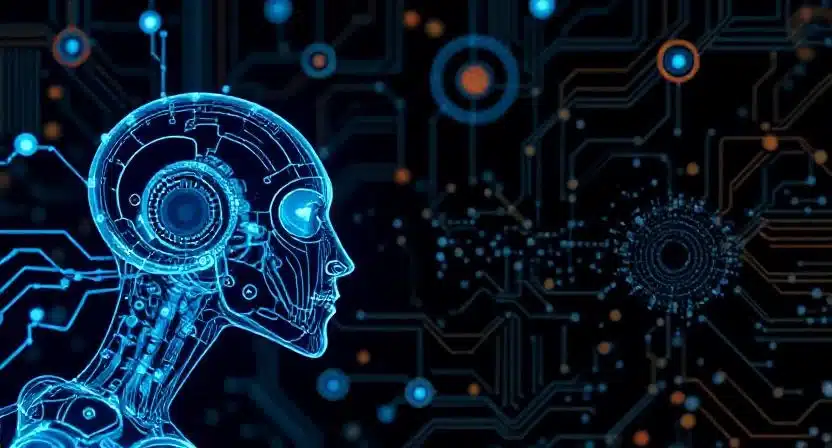
The Future of AI: 9 Innovations That Will Change the World
Future of AI, Innovations, Challenges, and Ethical Considerations
1. Understanding AI: Definition and Core Concepts
Artificial Intelligence (AI) refers to machines simulating human intelligence, learning from data, and making decisions. It includes machine learning, deep learning, and neural networks, which enable AI systems to analyze information and improve over time. AI powers automation, robotics, and data analytics, transforming industries and daily life. As AI evolves, its applications continue to expand, shaping the future of business, healthcare, and technology.
2. AI in Everyday Life: How It’s Changing the World
AI is no longer a futuristic concept—it’s part of our daily lives. From voice assistants like Siri and Alexa to personalized recommendations on Netflix, AI enhances convenience. Smart home devices, AI-driven customer support chatbots, and automated healthcare solutions further demonstrate how AI simplifies everyday tasks. As AI technology advances, its presence will grow, making life more efficient and connected.
3. The Rise of AI in Business and Economy
Businesses are rapidly adopting AI to improve efficiency and decision-making. AI-driven analytics help companies predict trends, while chatbots enhance customer service. In finance, AI aids in fraud detection and algorithmic trading. E-commerce platforms use AI for personalized shopping experiences, and manufacturing industries rely on AI-powered automation. As AI continues to drive economic growth, businesses must integrate AI strategies to stay competitive.
4. AI’s Influence on Healthcare and Medical Research
AI is transforming healthcare by improving diagnostics, predicting diseases, and enhancing patient care. AI-powered imaging systems detect illnesses like cancer at an early stage. Machine learning models analyze medical data to recommend treatments. Robotic surgery and AI-assisted drug discovery are accelerating medical advancements. With AI, the future of healthcare promises better outcomes, faster diagnoses, and improved efficiency in treatment plans.
5. The Role of AI in Cybersecurity and Data Protection
As cyber threats evolve, AI plays a crucial role in cybersecurity by detecting anomalies and preventing attacks. AI-driven systems analyze patterns to identify fraudulent activities and secure sensitive information. Businesses and governments are implementing AI-powered security solutions to combat cyber risks. However, while AI enhances protection, it also raises concerns about data privacy and the ethical use of personal information.
6. The Ethical Dilemmas and Bias in AI
AI presents ethical challenges, including bias in algorithms, transparency, and accountability. AI systems learn from historical data, which can lead to biased decision-making in hiring, law enforcement, and lending. Ensuring fair AI practices requires better data regulation and bias-mitigation strategies. As AI advances, ethical considerations must remain at the forefront to create trustworthy and fair AI applications.
7. The Future of AI: Innovations and Upcoming Trends
The future of AI will bring groundbreaking innovations. Generative AI will enhance content creation, while AI-powered robotics will reshape industries. Quantum computing will accelerate AI processing capabilities, leading to faster and more accurate data analysis. AI in smart cities will improve traffic management, energy efficiency, and public safety. As AI evolves, new possibilities will emerge, driving progress in multiple sectors.
8. AI and Human Collaboration: A Balanced Approach
AI is not here to replace humans but to collaborate with them. In workplaces, AI automates repetitive tasks, allowing humans to focus on creativity and decision-making. AI-assisted education tools personalize learning experiences, while AI-driven medical research enhances human expertise. The key to AI’s success lies in human-AI collaboration, ensuring technology supports human potential rather than replacing it.
9. How Individuals Can Prepare for an AI-Driven World
As AI reshapes industries, individuals must adapt by acquiring new skills. Learning AI programming, data science, and cybersecurity will be essential. Businesses should invest in AI literacy training to upskill employees. Ethical awareness and critical thinking will also play a vital role in ensuring AI development aligns with human values. Embracing AI-driven learning and career development will be key to thriving in the future.
Conclusion
AI is shaping the future, offering endless opportunities while posing challenges that require responsible development. From business and healthcare to cybersecurity and ethics, AI’s influence is vast. The key to a successful AI-driven future lies in human-AI collaboration, continuous learning, and ethical governance. As AI continues to evolve, those who adapt and embrace its capabilities will thrive in the digital age. The future of AI is not just about machines, it’s about empowering humans to achieve more.




